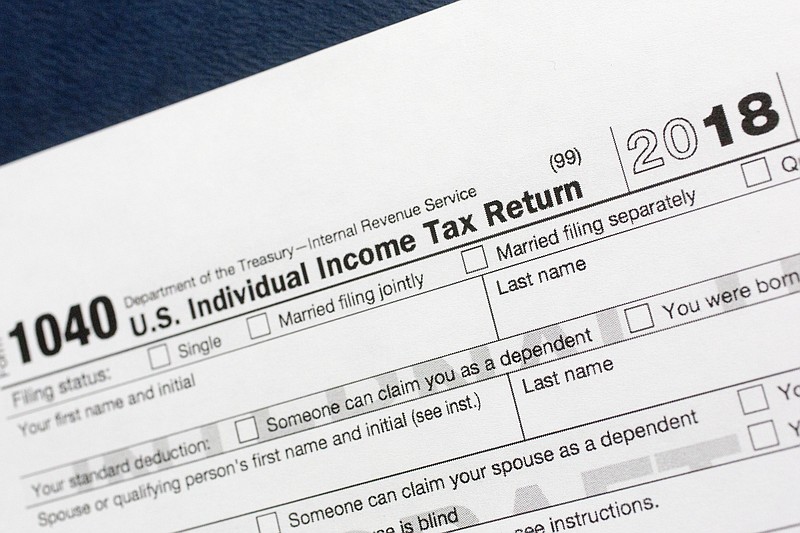CORRECTION: An earlier version of this story incorrectly identified Lookout Mountain in Georgia, rather than the city of Lookout Mountain, Tennessee, as the recipient of Hall income taxes. Updated: 4/27/2019 at 2:40 p.m.
The phase out of the Hall income tax may bring a smile to retirees and wealthy investors in Tennessee, but it is taking a bite into the budgets of mountaintop municipalities in Hamilton County.
The tax on investment and so-called unearned income in Tennessee is being phased out by the end of 2020 under legislation adopted by the Tennessee General Assembly in 2016.
Hall Income Tax by Year of Allocation
Collegedale* 2016 - $781,443* 2017 - $140,226* 2018 - $266,441Lookout Mountain* 2016 - $601,714* 2017 - $572,455* 2018 - $477,145Signal Mountain* 2016 - $888,551* 2017 - $642,084* 2018 - $500,032Walden* 2016 - $430,860* 2017 - $382,854* 2018 - $274,821
Three-eighths of Hall income tax, or 37.5 percent of the revenues collected in each city, is distributed to the local government of the municipality or county where the taxpayer resides. Cities that rely on funding to offer local services like schools, roads and fire protection are now looking for alternative ways to regain some of the lost revenue for municipal services.
In 2017, the Hall tax made up $572,455, or 20% of the city budget for Lookout Mountain, Tennessee. Last year, revenue dropped to $477,145 for Lookout Mountain, according to the Department of Revenue. The town raised its property tax rate from $1.83 to $1.89 per $100 of assessed value last year, in part, to recoup some of the loss.
In Collegedale, the Hall income tax generated $781,443 in 2016. In 2018, funding had already dropped to $266,441.
The state legislature agreed in 2016 to start phasing out the Hall income tax, which often varies widely because of fluctuations in interest rates, investment and profits.
The tax derives its name from State Sen. Frank Hall who introduced the tax in Tennessee in 1929 and applies to interest and dividend income for Tennessee residents. It is the only form of a personal income tax in the state.
The rate prior to 2016 was 6 percent, applied to all taxable interest and dividend income over $1,250 per person or $2,500 for a married couple. The state is reducing the Hall income tax by one percentage point each year, leading to a full repeal of the tax in 2021.
Backers of the repeal of the Hall income tax insist the phase out of the tax is helping to attract new residents and investment to the Volunteer State.
Justin Owen, CEO of the conservative Beacon Group, said the repeal will lead to a stronger state economy and cities that relied upon the Hall tax "should have reined in their spending rather than increase other taxes to offset the minimal lost revenue.
"The Hall Tax repeal is among the most important tax reforms in Tennessee history," he said. "We can finally hold true to our claims of being an income tax-free state, and we no longer punish retirees for saving for their future, drive investors out of our state, and make it harder for entrepreneurs to raise capital."
Owen said most cities relied on the Hall Tax for "a very small percentage of their budgets."
"They should have reined in their spending rather than increase other taxes to offset the minimal lost revenue," he said.
Groups such as the Tax Foundation criticized the Hall income tax because of what it said was a failure to bring in enough revenue to be worth the economic and administrative costs of collecting it. In fiscal year 2012, for example, Hall tax collections accounted for just 0.9 percent of state and local tax collections, according to the group.
That said, some small cities in Tennessee have depended on income generated by the Hall levy and have used the tax in the past to keep other taxes lower. With the elimination of the Hall income tax, some cities are raising property taxes to recoup revenue for municipal services.
